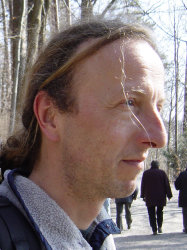Overview
I have broad interests in the application of isotopic techniques for research in earth, planetary, environmental and life sciences. Invariably, the studies apply novel isotopic methods, particularly to explore the stable isotope geochemistry and biogeochemistry of trace metals. Such investigations were essentially unheard of 15 years ago but are now feasible due to recent analytical developments. These advances enable the tiny natural isotopic variations of trace metals to be resolved with confidence, and this has opened up many exciting avenues of research.
My research focuses on the acquisition and interpretation of isotopic data for trace elements in a diverse range of natural samples, from rocks and natural waters to meteorites and various biological materials. These investigations involve challenging laboratory work, which is conducted in the analytical facilities of the MAGIC Laboratories at the Department of Earth Science and Engineering. Sample preparation (digestion of rocks, pre-concentration of elements from seawater, etc.) is thereby carried out in the state-of-the-art MAGIC clean room laboratories. The isotopic measurements require a precision and accuracy of 0.01% or better, and this can be achieved with the advanced mass spectrometers available in the MAGIC Labs.
Much of the laboratory-based research is carried out by students and post-doctoral researchers – if you are interested in such work, please don’t hesitate to get in touch with me!
Research Fields
In cosmochemistry and solid earth geochemistry, my research explores isotopic variations of trace metals from stable isotope fractionation, the decay of extinct radionuclides, and nucleosynthetic isotope anomalies.
In marine geochemistry, the studies also exploit various trace metal stable isotope systems. In addition, they explore natural and anthropogenic Pb isotope variations with unprecedented precision.
Novel investigations in environmental and agricultural sciences and in biomedicine focus on variations in trace metal concentrations and stable isotope compositions of plants and human tissues, respectively. Particular research interests are studies of Cd and Zn uptake by cacao and hyperaccumulator plants as well as investigations into the role of Zn in the development and progression of cancer.
Furthermore, I apply the techniques of stable isotope labeling and tracing to study the environmental behavior and fate of engineered nanoparticles, in support of improved risk assessments.
Finally, my research continues to drive the development of new techniques for isotopic analyses. Such work is never an end in itself but paves the way for novel applications of isotopic research, which aims to improve our understanding of natural systems, ranging from the early solar system to the human body.

